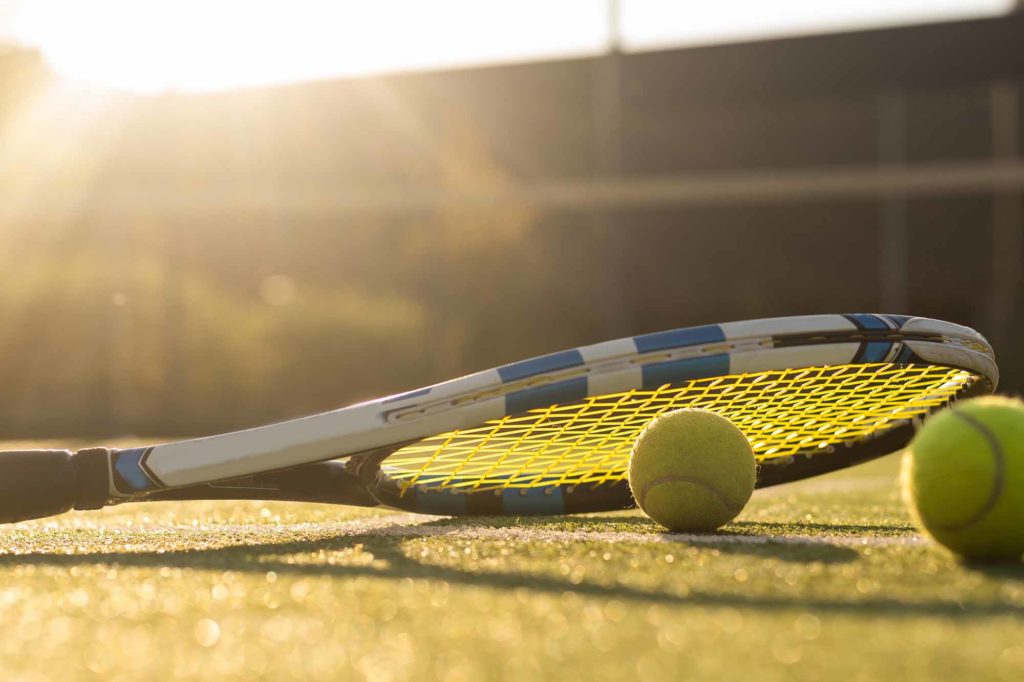First Person
Student Notebook: Applying Lessons From Sports to Academics

It is no easy feat for collegiate athletes to effectively balance student life with being an athlete (Lopes Dos Santos et al., 2020). In fact, data from the National Collegiate Athletics Association (NCAA, 2015) suggests that collegiate athletes spend more than 40 hours per week on sport-related activities, resulting in more than 80 total hours per week devoted to academic and athletic duties combined.

As a former collegiate tennis player and current graduate student, I would say that the demanding commitments of collegiate athletes are on par with the rigorous requirements of a clinical psychology doctoral program, which involves intensive coursework, research and dissemination, and clinical training. Thus, because I’ve jumped from one highly competitive environment to another, I will use an “athlete lens” to describe lessons learned from sports that help me manage the demands associated with the world of academia. In doing so, I hope to offer a unique perspective that can help all psychology students enhance their academic performance, personal development, and overall well-being.
1. Manage your time (effectively)
From my experience, one of the most valuable lessons I’ve learned from tennis is time management. Although time management approaches may vary from person to person, I believe the key lies in first identifying your top priorities—whether your personal research, family life, physical health, or so forth—and secondly, dedicating substantial time and attention to these priorities effectively.
During my time as an undergraduate student, my priorities were my sport and my academics, so I dedicated most of my time and attention to these areas. I found the best way for me to manage them both effectively was to use a calendar and planner system simultaneously. I would input all my class and study times, along with practice, competition, and travel times in my calendar, and homework assignment deadlines and exams in my planner. Now, as a graduate student and retired collegiate athlete, I continue to use this planner system, but my priorities have shifted—practice, competition, and travel blocks have now been substituted by research and client hours and, importantly, personal time. Seeing my schedule and deadlines in these time blocks allows me to stay organized and ensure I’m able to meet program expectations, as well as my own. Each person’s preferences and work methods vary, so while some may find value in using a similar planner system, it’s essential to find a system that suits your needs and supports your approach of managing tasks and time.
2. Adapt, learn, and repeat
Regardless of the sport, coaching changes happen quite often, leaving us with no choice but to adapt. Though some athletes may adapt more quickly than others, some may never fully do so. I was one of the athletes who had a harder time adjusting to coaching changes and questioned where I was going wrong. The “lightbulb moment” happened for me when I became open to the idea of change and embraced it as an opportunity for growth and learning rather than something I feared. I believe adopting a growth mindset begins with self-reflection and recognizing that change is an inherent aspect of life. By learning to let go of the urge to control every outcome, we can shift our focus toward adapting and responding to these changes in a proactive way.
In the sporting world, no coach will coach in the exact same way, and the same goes for advisors. For example, one strategy from coaching that can also be applied to the student–advisor relationship is positive reinforcement. Advisors who provide positive reinforcement, such as recognizing students’ progress and achievements, may foster a supportive and encouraging environment. However, if you are motivated more by goals than positive reinforcement, this strategy might not be as effective for you. Regardless, you have the opportunity to adapt and learn from what your coaches or advisors bring to table, and through this process you may learn more about yourself, including which strategies align with your values and motivate you to perform to the best of your ability.
3. Fail (effectively)
In academia, there is often a focus on celebrating success while overlooking the fundamental role of the failures. We congratulate one another on securing grant funding and having papers accepted for publication, but we rarely celebrate the failures we endured along the way. We need to fail to succeed: Past failures are directly or indirectly related to future success.
Playing a competitive sport taught me that failure is a part of the normal human experience and is essential for growth. So if we must fail, how do we do so effectively? First, we must look within and be completely honest with ourselves as to what went wrong and why. Then we can begin to accept our failure and, in turn, use it as motivation to improve the next time a similar situation arises. It sounds simple, but this lesson is incredibly difficult to master, as it comes with the additional obstacles of drowning out the outside noise (e.g., others expressing disappointment in your failure) and, arguably the hardest, drowning out the inside noise (e.g., negative self-talk, hurt ego).
So, the next time you lose a game or your paper gets rejected, I urge you to celebrate this loss—your future self will thank you.
4. Prioritize your well-being
Everyone is always going to want something from you—that’s the reality of being in any highly competitive environment. Coaches will want you to practice more and perform better, advisors will want you to do more research and publish more, clients will want more of your time and support, and so forth. This cycle will most likely never stop, but it creates the opportunity to learn how to set personal boundaries and prioritize your well-being.
Setting personal boundaries is an important part of your self-care as an athlete or graduate student, and can help you respect your emotional, psychological, and physical needs. I made the mistake as a collegiate athlete of leaving my well-being on the back burner, and as a result ended up suffering from burnout. I believe you will perform better in all areas, including athletics and academia, if you prioritize your well-being. Eat well, move your body, get enough sleep, do things (outside of sport or academia) that bring you joy, whatever they may be, as long as you’re giving yourself what YOU need.
Many graduate students in psychology enter the field with diverse and sometimes unconventional backgrounds. Whatever your background, your experiences can contribute to a more comprehensive approach to psychological research, dissemination, and practice. Trust your experiences, for they’ve prepared you well for this new chapter as a graduate student—it’s game time!
Student Notebook serves as a forum in which APS Student Caucus members communicate their ideas, suggestions, and experiences. Read other Student Notebook columns here, and learn about the benefits of Student Membership.
Interested in submitting a Student Notebook article of your own? Learn more and indicate your interest by clicking here (logged-in APS members only).
Feedback on this article? Email [email protected] or login to comment. Interested in writing for us? Read our contributor guidelines.
References
Lopes Dos Santos, M., Uftring, M., Stahl, C., Lockie, R., Alvar, B., Mann, J., & Dawes,
J. (2020). Stress in academic and athletic performance in collegiate athletes: A narrative review of sources and monitoring strategies. Frontiers in Sports and Active Living, 2, 42. https://doi.org/10.3389/fspor.2020.00042
National Collegiate Athletic Association (NCAA). (2015). NCAA GOALS study:
Growth, opportunities, aspirations and learning of students in college. https://www.ncaa.org/sports/2013/11/20/ncaa-goals-study.aspx





APS regularly opens certain online articles for discussion on our website. Effective February 2021, you must be a logged-in APS member to post comments. By posting a comment, you agree to our Community Guidelines and the display of your profile information, including your name and affiliation. Any opinions, findings, conclusions, or recommendations present in article comments are those of the writers and do not necessarily reflect the views of APS or the article’s author. For more information, please see our Community Guidelines.
Please login with your APS account to comment.